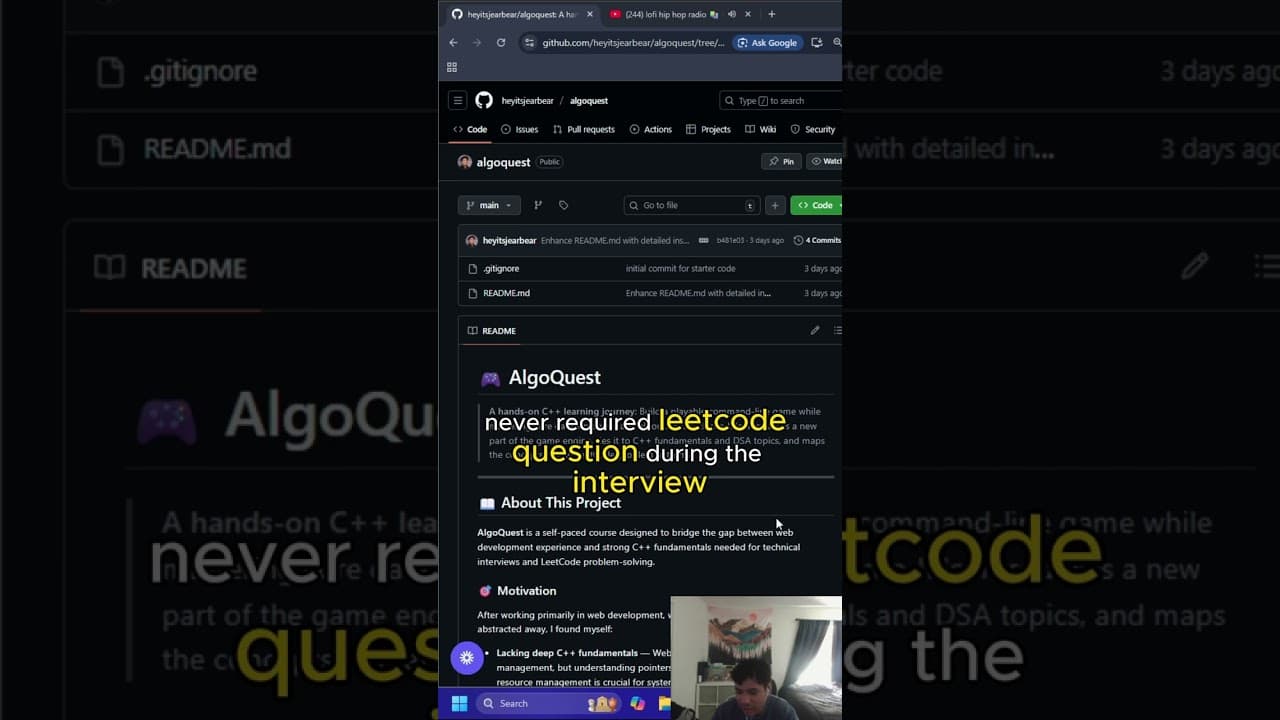November 10, 2025 • 2 min read
Why I’m Relearning C++ After Years in Startups

For most of my tech journey, I’ve lived in the world of startups—fast-moving, scrappy, and focused on getting things done. I’ve worn multiple hats across software engineering, data science, and customer success, and not once did an interviewer ask me a single LeetCode question.
At the time, that felt like a blessing. I was learning through doing—shipping features, solving customer problems, and building real products with real users. But over time, I started to notice something: my understanding of how things worked under the hood began to fade.
The Comfort Zone Trap
Working in startups trains you to prioritize speed. You reach for frameworks, libraries, and abstractions that help you move fast. But you start to lose touch with the low-level fundamentals—memory management, pointers, data structures—the things that actually make software work.
That realization hit me when I started thinking about interviews again. Even though I had experience, I knew if I were handed a whiteboard and asked to reverse a linked list, I’d freeze. It wasn’t that I couldn’t learn it—it’s that I’d stopped practicing thinking like a computer scientist.
Why C++ Specifically?
C++ forces you to slow down and understand. There’s no safety net. You manage memory, think about how data flows, and confront the reality of what’s happening behind every line of code. It’s the opposite of writing in JavaScript or Python with an AI assistant doing half the work for you.
Re-learning C++ isn’t just about interviews. It’s about sharpening my intuition—seeing the gears turn again. It’s about getting back to that place where I can open a terminal, write a few lines, and feel that spark of curiosity that got me into tech in the first place.
Doing It Publicly
I’m documenting this journey through a new project called AlgoQuest—an open-source C++ game that teaches data structures and algorithms through play. Each module maps to real LeetCode-style problems, so it’s not just learning syntax—it’s learning thinking.
I don’t know where this will go. But I know I’ll come out of it more grounded as a developer.
Sometimes, going back to the basics is how you move forward.